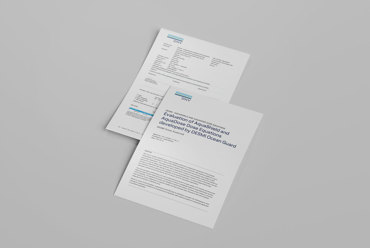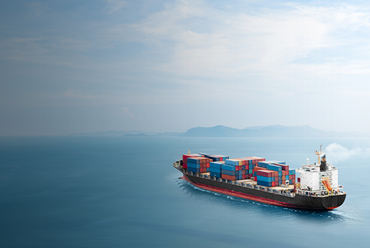
February 2024

February 2010
DESMI, Denmark’s leading manufacturer of marine pumps, has developed a process for checking the energy efficiency of marine pump installations and seawater cooling systems.
The EnergyCheck method provides real-time performance data for existing and new ship systems, delivering recommendations on how best to optimise the installation.
Shipowners that have already used the DESMI process have noted a 70% decrease in energy consumption through the optimisation of a ship’s seawater cooling system alone, resulting in substantial cost savings and emissions reduction due to decreased power requirements. “We have newly developed, high-efficiency pumps optimised to meet energy efficiency standards,” says DESMI Managing Director Henrik Mørkholt, “but we can do a whole lot more by optimising a ship’s complete system and by advising our customers on how to use the pumps in their systems more efficiently, even at the design stage.”
EnergyCheck can be used not only across DESMI’s entire range of pumps, including those used in cooling, ballast, fire, bilge, fuel, oil and cargo handling applications, but also those supplied by other manufacturers.
A seawater cooling system is normally designed to operate with a seawater temperature of 32°C, but if a frequency converter is used to adjust the rpm of the pump according to the demand of the vessel’s fresh water cooling system a seawater temperature at 15oC will result in up to 75% saving.
A frequency converter reduces the flow of the pump so that it matches the requirements of the system. DESMI highlights a case in which the 183m long product tanker Torm Thyra installed a frequency converter to its seawater cooling pump following a DESMI EnergyCheck. Its application resulted in an 85% energy saving for the Danish shipowner.
“If a pump is running at say 55kW, a frequency converter can reduce the power it requires by 85%. So if a pump is running for 24 hours for 200 days this could mean energy savings worth US$20,000 or more. The potential savings are huge,” says DESMI.
The return on investment is between 12 and 18 months and can be financed from the energy savings made. Another solution could be to analyse the system and then trim it so that it fits together. A result could be to
remove all orifices and trim the impeller at the pump or change the pump. (On a specific 6,000TEU containership a change of impeller gave a saving at 16kW or 27 t of fuel per year. Pay back time was about 7-8 months).
The work carried out by DESMI into the optimisation of pump and seawater cooling systems also forms an important part of Denmark’s ‘Green Ship of the Future’ project. (http://www.greenship.org/).Henrik Mørkholt recalls: “We started on the Green Ship project about two years ago, looking at pumps and systems for cooling water with a number of other project partners, including APV and Grontmij Carl Bro, a heat exchange supplier and naval architect respectively. Co-operation was initiated with a view to trying to optimise auxiliary service systems onboard ships by combining the DESMI expertise and knowledge with the practical experience of the three partners. The project partners focused on the seawater cooling system of a bulk carrier.
Mr Mørkholt says that the pressure drop of the cooler is essential. The cooler is the component in the seawater system causing the highest resistance, and consequently it has a significant impact on the overall system pressure and in that way facilitates the installation of smaller pumps. Therefore the chosen cooler pressure drop should be specified very clearly, when purchasing departments are purchasing the coolers.
“Projects that were on the drawing board just two or three years ago are now being realised so we are getting the results back on the savings that we actually promised at the time. Greener ships are now being delivered and we can confidently say we can deliver what we promise,” Mr Mørkholt affirms.
DESMI, one of Denmark’s oldest companies, is also involved in projects delivering pumps for scrubber systems and has just embarked on a project to look at waste heat systems for oil tankers.
DESMI is working towards even greater environmentally-friendly solutions and can supply pump systems for oil spill recovery, such as the DESMI RoClean, and the DESMI Ocean guard for ballast water treatment.


February 2024

February 2024

August 2023

August 2023